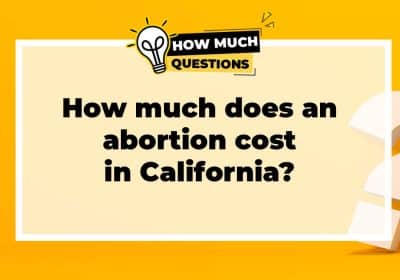
How Much Does Medicare Cost at Age 65? A Comprehensive Guide
Understanding the Medicare Cost at Age 65 is crucial for retirement planning. Dive deep into the factors influencing the price, cost-saving tips, and guidance for making optimal choices.

Introduction
Medicare, a vital health insurance program for seniors, often becomes a focal point of consideration as one approaches retirement. Specifically, understanding the costs associated with Medicare at age 65 can be pivotal for financial planning. In this guide, we'll explore the various factors that influence these costs, provide insights on saving money, and offer guidance for making the best decisions.
How Much Does Medicare Cost at Age 65?
Medicare, the U.S. government health insurance program, offers various plans with different costs for individuals aged 65 and older. At age 65:
- Medicare Part A (Hospital Insurance): Most people don't pay a monthly premium for Part A if they or their spouse paid Medicare taxes for at least 10 years. However, if they don't qualify for premium-free Part A, the cost can be up to $471 per month (as of 2021).
- Medicare Part B (Medical Insurance): The standard monthly premium for Part B in 2021 is $148.50. This amount can vary based on income.
- Medicare Part C (Medicare Advantage): Premiums vary by plan. Some plans may have premiums as low as $0, while others may charge higher amounts.
- Medicare Part D (Prescription Drug Coverage): Costs vary by plan and region, with the average monthly premium being around $33 in 2021.
It's essential to note that these costs can change annually and might be influenced by factors like income, whether you're still working, and if you've paid Medicare taxes. Always consult the official Medicare website or a trusted advisor for the most up-to-date information.
Factors Influencing Cost
Medicare premiums are monthly fees that beneficiaries pay. The amount can vary based on income, the type of Medicare plan chosen, and other factors.
Deductibles
Before Medicare starts paying its share, beneficiaries might need to meet a deductible. This amount can change annually.
Co-payments and Coinsurance
These are out-of-pocket costs that beneficiaries pay for specific services or items, even after meeting the deductible.
Type of Medicare Plan
Costs can vary significantly between Original Medicare (Parts A & B) and Medicare Advantage Plans (Part C).
Pre-Purchase Considerations
Evaluate Your Health Needs
Consider your current health status and potential future needs. This will help in selecting the right plan.
Review All Available Plans
There are multiple Medicare plans available. Thoroughly review each to determine which aligns best with your needs.
Consider Additional Coverage
Medigap or Medicare Supplement Insurance can help cover costs not included in Original Medicare.
Cost-Saving Tips
- Annual Review: Regularly review your plan during the Medicare Open Enrollment period to ensure you're getting the best value.
- Consider Medicare Advantage: These plans often come with additional benefits and might offer cost savings.
- Stay In-Network: Using doctors and providers within your plan's network can result in lower out-of-pocket costs.
Guidance for Optimal Choices
- Seek Expert Advice: Consulting with a Medicare specialist can provide clarity on the best options for your situation.
- Understand the Fine Print: Be aware of any restrictions, limitations, or additional costs associated with your chosen plan.
Conclusion
Understanding the costs associated with Medicare at age 65 is essential for seamless retirement planning. By considering the influencing factors, making informed pre-purchase decisions, and employing cost-saving strategies, you can ensure optimal health coverage. We encourage readers to share their experiences, leave comments, or ask questions below.
This article is intended for informational purposes only. It's essential to seek professional advice before making any decisions, especially where legal or financial implications might arise.
Frequently Asked Questions (FAQ)
What does Medicare cost?
Medicare costs are determined by various factors, including monthly premiums, deductibles, co-payments, and the specific type of Medicare plan chosen. Generally, beneficiaries pay a monthly premium and a portion of the costs each time they access a covered service. It's essential to note that there's no yearly limit on out-of-pocket expenses unless one has supplemental coverage like a Medicare Supplement Insurance (Medigap) policy or enrolls in a Medicare Advantage Plan.
What factors influence Medicare costs?
The costs associated with Medicare are influenced by several factors, including the type of coverage and services received and the providers visited. There's no yearly limit on out-of-pocket expenses unless one has supplemental coverage, such as a Medicare Supplement Insurance (Medigap) policy or joins a Medicare Advantage Plan.
Each year, Social Security sends a letter to individuals collecting Social Security benefits, detailing each person's exact Part B premium. This amount can vary based on income and other factors. For specific details, one can visit Medicare.gov or contact 1-800-MEDICARE.
Is Medicare coverage free at age 65?
While Medicare Part A is typically offered at no additional cost for qualified seniors, other parts of Medicare usually come with a monthly fee. For instance, the standard amount for Medicare Part B was $148.50 in 2021, but this can change based on an individual's income and other factors.
What are the financial considerations at age 65?
At age 65, individuals need to consider various financial aspects, including Medicare costs. For example, while Medicare Part A might be free, Part B, covering doctor and outpatient services, had a cost of $144.60 per month in 2020. This amount can be higher for those with greater incomes.
How much do health care costs account for in retirement?
Health care costs can constitute a significant portion of an older household's spending, ranging from 9% to 14%. The exact amount one spends on health care in retirement can vary, with some individuals spending less and others potentially much more. It's crucial to plan and budget for these expenses as one approaches retirement.
If you want to know other articles similar to How Much Does Medicare Cost at Age 65? A Comprehensive Guide you can visit the category Healthcare and Wellness.
Leave a Reply







You might be interested in